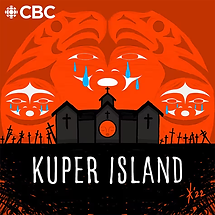Residential and Day School Resources
Wellness Supports
Learning about residential and day schools can be difficult and, in some cases, triggering. You are encouraged to access support if you need it.
If you are Indigenous, the following supports are available:
National Indian Residential School Crisis Line
The support line provides crisis counselling and emotional support for survivors and intergenerational survivors 24 hours a day, 7 days a week.
Telephone (toll-free): 1-866-925-4419
First Nations and Inuit Hope for Wellness Helpline
The Hope for Wellness Help Line offers immediate help to all Indigenous peoples across Canada. It is available 24 hours a day, 7 days a week for counselling and crisis intervention.
Telephone (toll-free): 1-855-242-3310
Online chat: www.hopeforwellness.com
Indian Residential Schools Resolution Health Support Program
This program provides mental health and emotional support services to eligible residential schools survivors and their families. There are Resolution Health Support Workers across the North. To access the services of one of these workers, contact the regional office of the support program:
Telephone (toll-free): 1-800-464-8106
Teletypewriter: 1-800-267-1245 (Health Canada)
Indian Residential School Survivors Society (IRSSS)
The Indian Residential School Survivors Society operates a 24-hour crisis line to support survivors and families across British Columbia and beyond. Survivors can also access support as part of the National Action Plan to End Gender-Based Violence. The crisis line will remain open during the winter holidays.
Telephone (toll-free): 1-800-721-0066
Other supports include:
The NWT Helpline offers free, confidential support to residents of the NWT, 24 hours a day, 7 days a week. The helpline also has an option for follow-up calls with a Care Coach. Services are available in English and French, with translation services provided for all official languages of the NWT.
Telephone (toll-free): 811 or 1-844-259-1793.
NWT Community Counselling Program
The Community Counselling Program helps people deal with a variety of issues including family violence, mental health issues, and addictions. It is available free of charge to every NWT resident, in every region of the NWT. Counsellors live in 19 communities. In the other 16 communities, counsellors provide phone support, in-person counselling on a fly-in basis, and through telehealth.
Telephone: 1-867-767-9061
Learn More About Residential and Day Schools in the NWT
Northern Memoirs/Biographies
The richest sources about residential and day schools in the NWT are Survivors’ first-hand accounts. Click on the photos for more information about these books.
Other memoirs and biographies include:
Cockey, Cathy, ed. Paulatuuq Oral History Project: Inuvialuit Elders Share Their Stories. Inuvik, NWT: Parks Canada, 2004.
Thrasher, Tommy T. Footprints to the Stars: The Story of My Life, These Are the Footprints of My Ancestors That I Followed, If You Follow Them Too, You will Make It. Inuvik, NWT: Boreal Books, 2009.
Historical Publications about Northern Residential Schools
Special Issue on Education in the Territorial North.
Crystal Gail Fraser and Jessica Dunkin, “‘This Year Book...has been entirely produced by staff and students’: Indigenous Youth, Indian Schooling, and Historical Production in the Northwest Territories, 1959-71” (2023)
Other Resources






















.jpeg)

